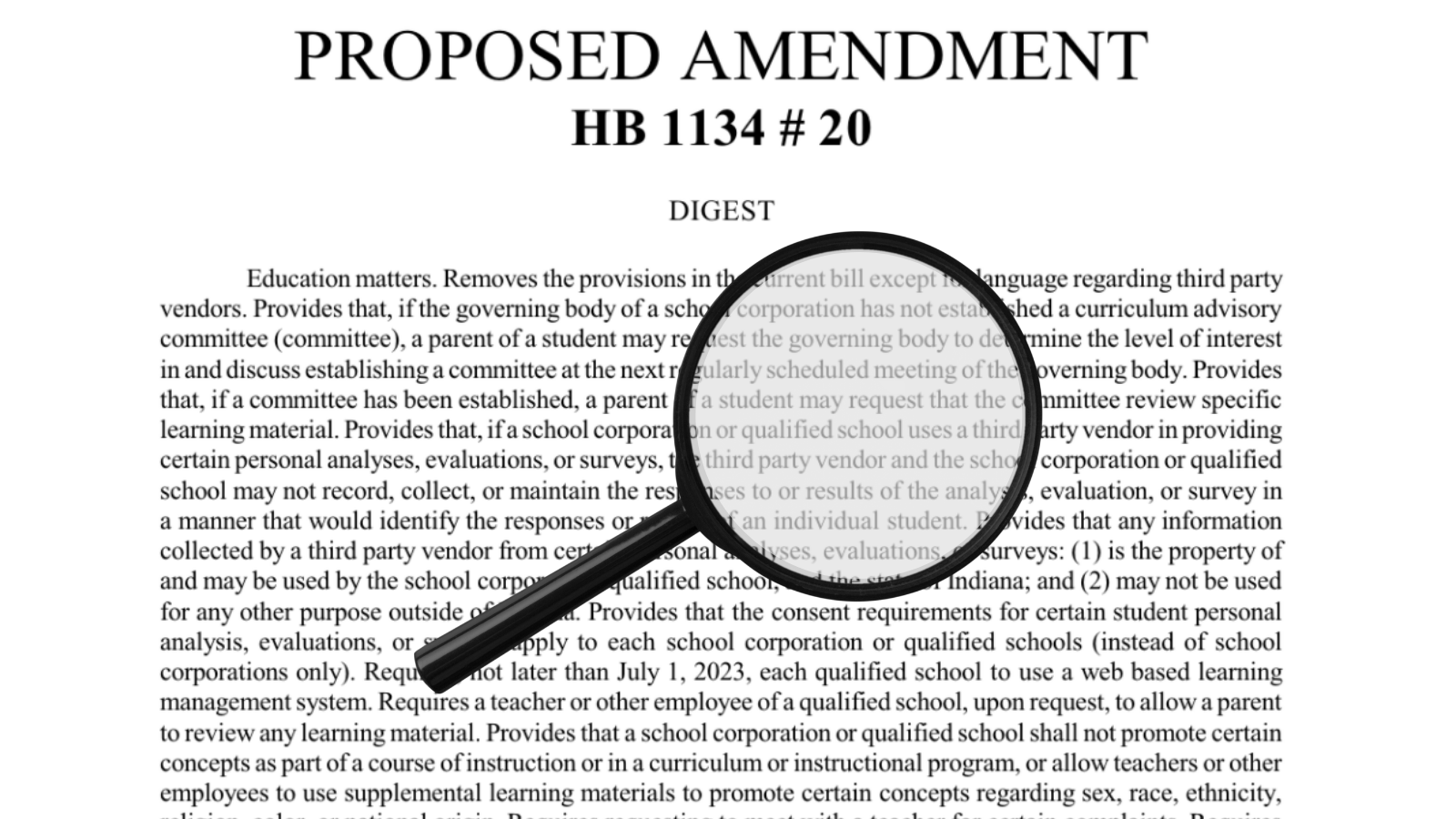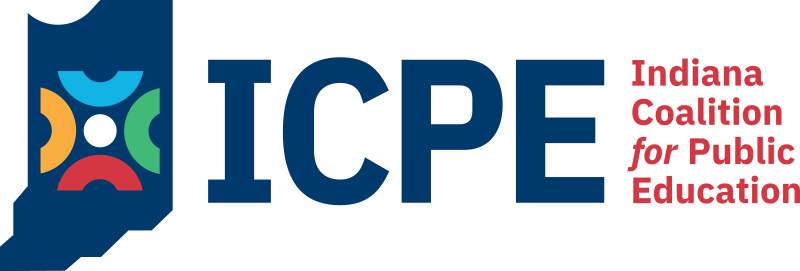Amended HB 1134 Analysis

Joel Hand’s analysis of HB 1134 with the proposed amendment as of Feb. 15, 2022
Overall, HB 1134 with the proposed amendment will remain a bad bill, but it is less bad than it was.
What the amendment removes:
- The amendment strikes ALL of the House Engrossed version of HB 1134 with the exception of portions of SECTION 7 of the bill which were on pages 17-18.
- Language pertaining to prohibiting professional development related to the “8 tenets” from the original bill is gone.
- Provisions that could have generated civil lawsuits and loss of teacher licenses are gone.
- Provisions that require posting of lesson plans and lectures are gone.
- All provisions related to the SB 17 language related to the immunity for teachers & librarians for criminal offense of material harmful to minors, but that language still remains alive in SB 17, which is now in the House.)
What would still be in the bill with the proposed amendment:
- Portions of SECTION 7 of the bill which were on pages 17-18 remain from the original as follows:
Chapter 21. Personal Analysis, Evaluations, or Surveys by Third Party Vendors
If a school corporation or qualified school uses a third party vendor in providing a personal analysis, evaluation or survey that reveals, identifies, collects, maintains or attempts to affect a student’s attitudes, habits, traits, opinions, beliefs, or feelings, the third party vendor and the school corporation or qualified school may not record, collect, or maintain the responses to or results of the analysis, evaluation, or survey in a manner that would identify the responses or results of an individual student.
This remaining language above is still deeply concerning for school counselors. School counselors utilize these surveys to help determine which students need mental health and emotional supports. These surveys are frequently used to help identify students who may need help with relationship building and how to regulate their own emotions. If the results of the surveys can’t be used to identify which students need the help, how are the school counselors supposed to do their jobs? Employers want and need employees who can build and maintain positive relationships with others and who can keep their emotions in check. This provision will severely hinder the ability of schools to pin-point those students who have these needs so that they can be addressed.
What was added:
- The amendment defines “learning material” as textbooks, printed materials, audiovisual materials, electronic or digital materials including those on the internet, library materials, student surveys and syllabi. Tests, assessments and lesson plans are specifically excluded. (Page 1-2 of the amendment.)
- The amendment allows a school corporation to create a curriculum advisory committee which must include teachers and parents, to make recommendations to the superintendent and school board concerning the use of learning materials. If the school corporation does NOT create a curriculum advisory committee, the parent of a child enrolled in the school corporation may request the board to determine the level of interest in creating a curriculum advisory committee among parents and educators in the district and the board must then discuss establishment thereof at the next regular meeting. This provision also allows a parent to request a curriculum committee to review specific learning materials including textbooks and materials used for social-emotional learning. (Pages 5-6 of the amendment.)
- The amendment defines “qualified school” to include a school maintained by a school corporation, a charter school, laboratory school, School for the Blind & School for the Deaf. It does not include any non-public schools.
- The Amendment adds to the Chapter 21 provisions listed in bullet point 1 above that information collected by a third party vendor from a personal analysis, evaluation or survey is the property of the school and the State of Indiana and may not be used for any purpose outside of Indiana. It creates a process for a parent to file a complaint for a violation of Chapter 21 above and charges IDOE for developing guidance for implementing. (Pages 6-7 of amendment.)
- The amendment limits school counselor immunity for disclosure of privileged or confidential information provided by a student. (Page 7 of amendment, lines 14-22.)
- The amendment extends to all qualified schools requirements for obtaining written consent prior to providing instruction in human sexuality. (Page 8-9 of amendment.)
- The amendment adds a new Chapter 17. Learning Management System. Requires that by July 1, 2023, each qualified school must use a web-based learning management system. (Examples would be Canvass or Google School.) The learning management system must be accessible to parents and allow for them to review any learning material and to contact the teacher. (Pages 9-10 of the amendment.)
- The amendment creates a new Chapter 1.5 titled Dignity and Nondiscrimination in Education. This replaces the prior “eight tenets” language from the original bill with essentially three tenets. (Page 10-12 of the amendment.) These three tenets prohibit the promotion of the concept that any race, sex, ethnicity, religion, color or national origin is: 1. Inherently superior or inferior to another, 2. That any individual should be treated adversely or preferentially based on race, sex, etc.; or 3. That by virtue of sex, race, etc. that an individual is inherently responsible for the past actions committed by other members of the same group. There are lots of questions about what the word “promote” means as used in this section. There is no definition, so it would be open to interpretation by attorneys, judges and potentially juries. Concerns that this would essentially prohibit teaching about affirmative action, reparations and perhaps many others as well. It still includes language that makes clear that this section does not exclude teaching about factual history or historical injustices.
- The amendment creates a complaint process for a student/parent to challenge a teacher who violates the Dignity and Nondiscrimination section above. The complaint process involves first meeting with the teacher, then if the person filing the complaint is not satisfied, he or she may file a grievance with the school corporation. It requires the school corporation to develop procedures for a grievance process. If the parent is still not satisfied, it allows the parent to file a complaint with IDOE and for IDOE to review the complaint and then issue a final Order within 30 days of filing of the complaint. (Pages 11-12 of amendment.) One concern here is that there is no duty for IDOE to conduct any investigation nor even contact the school about the complaint.
- Starting on page 12-14, the amendment creates a new Section 27 that requires parental consent before a school employ may provide “a student with ongoing or recurring consultation, collaboration, or intervention services for mental, social-emotional, or psychological health issues.” It requires school to provide the parent with a description of the services intended to be provided to the student and reasons for making the request. The amendment requires the school to first attempt phone contact with the parent and then to follow up with an email or letter followed by a second letter giving the parent up to a total of 10 days to give consent. If the parent fails to respond, only after passage of those 10 days may the school proceed with providing the service. The obvious concern here is the extreme delay between identifying the need for service and being able to start implementing the service. There is an exception for an emergency response or crisis situation in which the student is in immediate danger of harming self or others or experiencing abuse or neglect. It allows the parent to opt out of these services entirely without justification or cause.
